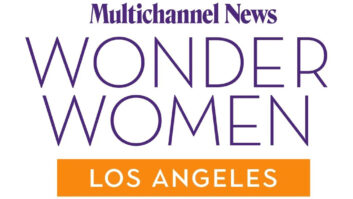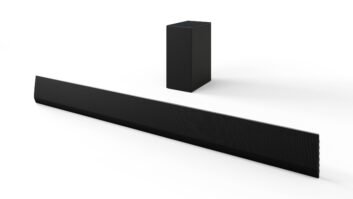The Federal Communications Commission (FCC) and the Department of Justice (DOJ) closely approved News Corp.’s acquisition of controlling interest in Hughes Electronics and its DirecTV satellite television unit right before Christmas.
The FCC commissioners split down party lines on the measure, with the three Republicans voting in favor of the $6.6 billion deal, while the two Democrats voted against it.
The DOJ’s approval of the deal, which gives News Corp. a controlling 34 percent stake in General Motor’s Hughes Electronics unit, came with the condition that News Corp. appoint only U.S. citizens to the Hughes Electronics Corp./DirecTV audit committee.
The FCC approval requires the following:
- DirecTV must offer local TV stations in the top 130 markets — 30 more than the company had previously anticipated – by the end of 2004.l All of News Corp.’s programming networks must be offered to competing cable- and satellite-TV providers on a nonexclusive and nondiscriminatory basis.
- Hughes must continue to operate under the rules requiring good-faith negotiations for broadcast-carriage rights as long as cable program-access rules are in effect, rather than expiring in 2005, as they do for the rest of the satellite industry.
“The conditions, as we understand them from the public notice, will not adversely affect our future plans for the operation of the business,” News Corp. chairman Rupert Murdoch and new Hughes CEO Chase Carey said through a joint statement.
Those who opposed the deal cited the potential for News Corp. to use its diverse media holdings to extract higher prices for News Corp.-owned content from customers of competing multi-channel services.
Under the terms of the approval, News Corp. must agree to arbitration to solve disputes with cable and satellite companies that carry its broadcast and cable channels. Additionally, News Corp. will be required to deal with all stations equally, and not give special advantages to broadcasting and cable networks operated by its FOX programming units.
In explaining his support for the deal, FCC chairman Michael Powell said, “This merger, with strict conditions, ultimately benefits the American public. News Corp. has a history of taking significant risks and introducing new and innovative media services. Enhanced competition will increase pressure to improve service and lower prices for both cable- and satellite-television subscribers.”
Even with the conditions, the Commission’s Democrats had issues with the transaction.
“When is ‘Big Media’ big enough? Where is the public interest benefit —of giving more and more media power to fewer and fewer players?” asked Michael Copps, a Democrat commissioner.
Jonathan Adelstein, the other Democrat on the commission, argued that terms of approval only called for the operator to provide local channels in 30 additional markets by the end of 2004 instead of requiring local channel service in all 210 television markets.
Robert Sachs, National Cable & Telecommunications Association president, said the approval should remove any notion that cable television lacks competition.
Thomson, which helped to develop DirecTV’s digital satellite system and continues to sell set-top boxes for the service, congratulated the companies for the approval.
Thomson has a strong relationship with the News Corp organization on a global basis.
Con Maloney, president of Jackson, Miss.-based retailer Cowboy Maloney’s, welcomed the announcement, adding that News Corp.’s decision to keep DirecTV chairman Eddy Hartenstein as vice chairman of the new Hughes operation, assured him.
“This has always been Eddy’s baby, and regardless of all of the people that have come and gone, when daddy’s [Hartenstein] still around, then you can anticipate that things are still going to be good,” Maloney said.
“He told me they are planning on major increases in their penetration, and they are going to have to do this from a lot of different fronts, and the independent dealer remains an integral part of DirecTV’s plans,” he continued.
With the deal completed, Murdoch becomes chairman of Hughes, while the company’s former co-chief operating officer, Chase Carey, will become president and CEO of Hughes and Hughes’ corporate senior executive VP Eddy Hartenstein will become vice chairman of Hughes.
Mitchell Stern, the former CEO of Fox Television Stations and Twentieth Television, will become president and chief executive officer of DirecTV.
GM will split off its subsidiary Hughes by distributing Hughes common stock to the holders of GM Class H common stock in exchange for shares that they own.
In addition, GM will sell its 19.8 percent economic interest in Hughes to News Corporation. News Corporation will then acquire from the former GM Class H common stockholders an additional 14.2 percent of the outstanding shares of Hughes common stock in exchange for News Corporation Preferred American Depositary Shares.













